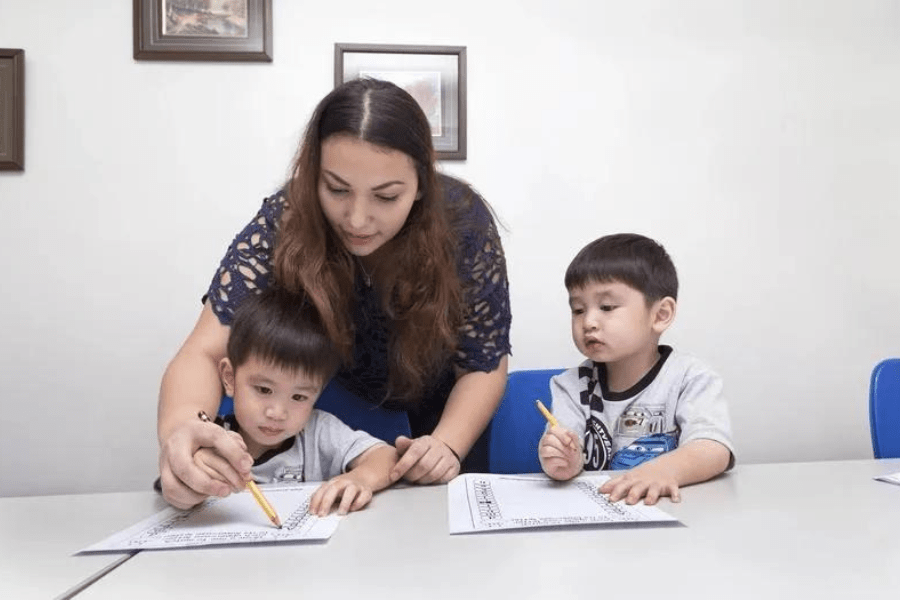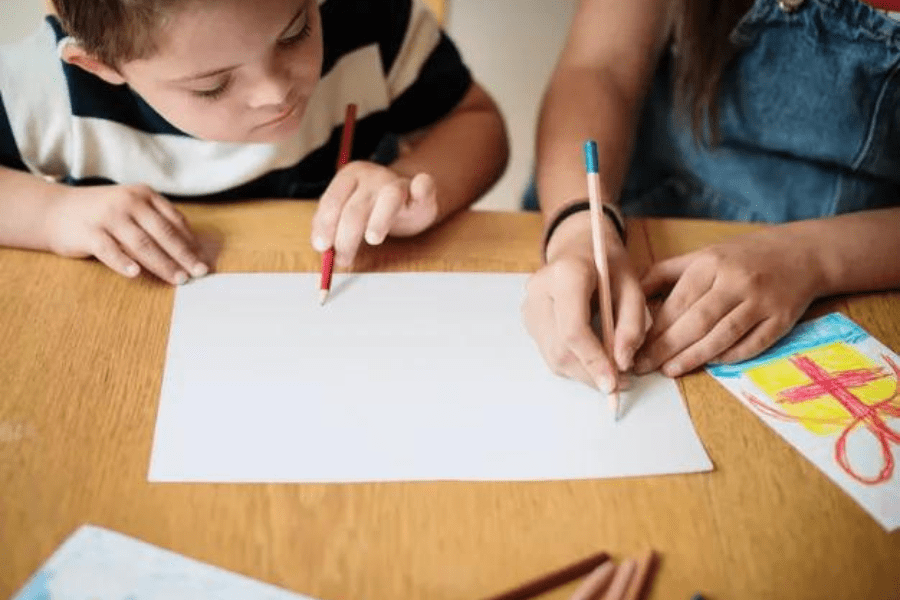
Source: alamy
In this self-motivated and stimulating domain of education, the part of Shadow Teachers has become progressively significant. Shadow Teacher Skills are not just a set of capabilities, but they are the strength of an exclusive educational plan that helps children with special requirements. This expertise includes a range of methods and potentials, from endurance and responsiveness to active communication and behavior management.
Comprehending and understanding Shadow Teacher Skills is important for individuals who seek to create a remarkable influence in the lives of their learners. This article aims to discover the ten Shadow Teacher Skills that are essential for achieving success in this satisfying yet difficult profession.
Patience
A key skill for shadow teachers is patience. Children with special needs often require more time to understand or complete tasks and hence a shadow teacher needs to be patient enough so that the child develops confidence to strive harder and better. For instance, a shadow teacher might repeatedly explain a concept in different ways until the child grasps it, demonstrating patience and perseverance.
Adaptability
The ability to adapt to varying situations is essential. A shadow teacher might need to modify lesson plans if the child struggles with the original approach. Having an alternate plan always is a crucial aspect for a shadow teacher and therefore possessing adaptability is very essential for a shadow teacher. For instance, if a child is astounded by a mathematics problem, the shadow teacher could pause it down into slighter, convenient steps.
Communication Skills
Lucid and easily understandable communication with learners, educators, and parents is critical. A shadow teacher should be able to clearly communicate a child’s requirements and progress so that the various stakeholders who are part of the child’s journey can contribute more towards the child’s progress. For example, they influence the use of simple language or graphical aids to support youngsters understand a task, and then communicate the child’s answer to the head teacher.

Source: freepik
Empathy
Comprehending and sharing the emotions of others, and sympathy enables teachers to connect with their learners on a more profound level. If a kid is irritated, the teacher should recognize their emotions making them feel comfortable helping them calm down by providing a comfortable environment.
Observation Skills
Keen observation skills enable teachers to notice subtle changes in a child’s behaviour or progress. Minute changes in a child’s behaviour can be of great significance so the teacher has to be vigilant to recognize any differences in the child’s behaviour patterns. note For example, they might observe that a child is more focused in a quiet environment and suggest adapting their learning space accordingly.
Interested in enrolling for Shadow Teacher Course? Dial VES at +919321024137 / +919869866277.
The Shadow Teacher Course brochure can be Downloaded Here.
Collaboration
Successful collaboration with various care providers who are a part of the child’s educational journey will always benefit the child to perform better. Functioning efficiently with educators, counsellors, and parents is important. Collaboration might involve discussing a child’s Individualized Education Plan (IEP) and ensuring that classroom activities are aligned with it.
Behavior Management
Managing and redirecting challenging behaviors positively is a key skill. teachers with excellent behaviour management skills will always be able to conduct their classrooms efficiently. For instance, if a child becomes disruptive, a teacher might use a calm voice and clear instructions to guide them back to the task at hand.
Creativity
Creativity is the essence of being in the teaching profession. Being creative in teaching methods can enhance learning. For example, if a child struggles with traditional methods of learning math, the teacher might use games or practical activities to make the subject more engaging.
Cultural Sensitivity
Working in the educational sector calls for cultural sensitivity on the part of the teacher as she has to help children from diverse cultures to function together in a learning environment successfully. A teacher might learn about a child’s cultural background to incorporate familiar elements into the learning process.
Resilience
The capability to handle the challenges and obstacles is critical. For instance, if a learner does not show desired progress, the teacher must endure positive and constant, continuously seeking new techniques to simplify learning.
The shadow teacher skills are essential for supporting and improving the educational knowledge of children with special requirements. By being resilient teachers can make an important change in the lives of the learners, safeguarding that every child gets the attention and help they require to flourish in their educational path.
Mastering Shadow Teacher Skills is a journey of continuous learning and adaptation. For those inspired to further enhance their abilities in this field, the Shadow Teacher Training Course offered by Vidhyanidhi Education Society presents an excellent opportunity. This course is designed to equip you with the knowledge and practical skills necessary to excel as a teacher.
Elevate your journey in special education with Vidhyanidhi’s Shadow Teacher Course!
Interested in enrolling for Shadow Teacher Course? Dial VES at +919321024137 / +919869866277.
The Shadow Course brochure can be Downloaded Here.
Shadow Teacher Skills
FAQs
How to be a Shadow Teacher?
Become a Shadow Teacher by enrolling in the STT Course at Vidhyanidhi Education Society for essential skills and knowledge.
How can I be a good Shadow Teacher?
To be a good Shadow Teacher, cultivate patience, empathy, adaptability, and effective communication and behavior management skills.
How much does a Shadow Teacher Earn?
Shadow Teachers might earn anything from ₹15,000 to ₹30,000 per month, depending on their expertise, location and an authentic certification from an Institute like VES.



